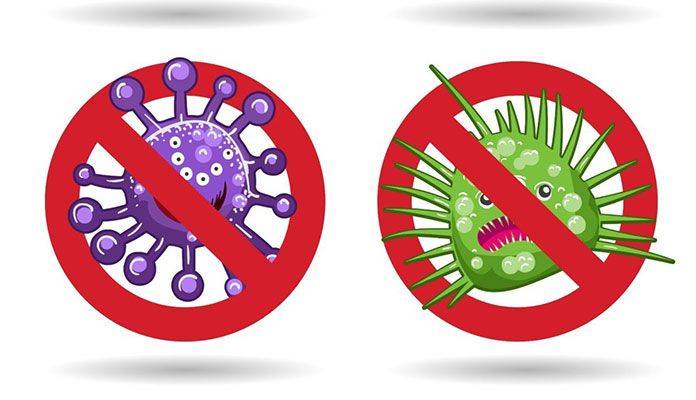As the global pandemic continues, finding effective protection against coronavirus (COVID-19) remains crucial. Worldwide, researchers are actively exploring treatments to combat the virus and prevent severe infections. One such treatment that has garnered attention is Ivermectin. Early in the pandemic, claims emerged about Ivermectin’s potential effectiveness against COVID-19. While traditionally used for other purposes, it has shown promise as a possible preventive measure against the virus.

Though it feels like years since COVID-19 first emerged, new variants continue to appear, and this pattern may persist for some time.
Staying prepared is key. This summer, the U.S. has seen the spread of new COVID-19 sub-variants, including EG.5 (commonly called Eris) and BA.2.86.
On a positive note, recent variants have not proven more dangerous than earlier ones. Current hospitalization and death rates remain significantly lower than previous peaks, according to CBS News. Widespread testing and vaccinations have been instrumental in controlling transmission.
However, the Centers for Disease Control and Prevention (CDC) reports a recent uptick in COVID-related hospitalizations and deaths. These developments serve as important reminders to remain vigilant about protective measures.
“Numerous new variants have emerged, and more are likely on the way,” says Dr. Michelle Prickett, MD, a critical care medicine specialist at Northwestern Medical Group. “While there’s no need for panic, we must continue using the tools we have to keep infection rates low.”
Key Facts About the Eris COVID Variant
Remember the COVID surge in December 2021? That was largely driven by the highly contagious Omicron variant, which became dominant due to its rapid spread, though it often caused milder symptoms, as noted by the Mayo Clinic.
The evolution of SARS-CoV variants continues. The CDC describes Eris as a descendant of Omicron, currently accounting for about 20.6% of U.S. COVID cases. While case estimates involve some uncertainty due to rapid spread, this figure provides a reliable approximation.
The CDC has classified Eris as a “variant of interest.” Its unique mutation may help it evade immunity from prior infections or vaccinations, as reported by the New York Times.
Importantly, Eris is not inherently more severe than previous strains. The World Health Organization assesses its global risk as “low.”
Symptoms of New COVID Variants
Most people are now familiar with common COVID symptoms. Recent variants produce symptoms similar to earlier strains. Based on CDC information and Dr. Prickett’s expertise, here’s a complete list of potential symptoms:
- Persistent cough
- Persistent headache
- Muscle pain
- Sore throat
- Fatigue
- Chills or fever
- Nasal congestion or runny nose
- Nausea or vomiting
- Diarrhea
- Shortness of breath or difficulty breathing
The Eris variant is detected and treated similarly to previous strains, responding the same way to tests and treatments like Paxlovid, according to the New York Times.
Understanding the BA.2.86 COVID Variant
While Eris currently dominates in the U.S., the New York Times has identified seven global cases of BA.2.86. (This number is likely higher due to reporting limitations.)
This variant features significant mutations, particularly in the spike protein used for infection, notes Jesse Bloom of the Fred Hutchinson Cancer Center in a New York Times interview.
BA.2.86’s evolution resembles Omicron’s divergence from earlier strains, suggesting it could have a similarly notable impact.
However, it’s too early to fully understand this variant or confirm its transmissibility, reports the New York Times. Therefore, immediate concern isn’t warranted.
Booster Shot Recommendations
Currently, if you’re current with vaccinations, no additional booster is needed, advises Dr. Prickett. For most adults, this means receiving the primary vaccine series and one booster.
“Consult your doctor about booster eligibility,” suggests Dr. Prickett. “But there’s no current recommendation for extra boosters.”
In June, the FDA approved an updated booster targeting the XBB 1.16 Omicron subvariant, potentially making it more effective against strains like Eris.
CBS News reports these updated vaccines may become available by late September 2023, pending FDA approval and updated CDC guidelines. The exact timeline remains uncertain.

Now, let’s examine Ivermectin—what it is, its potential COVID-19 applications, how it works, and important usage considerations.
Understanding Ivermectin
Ivermectin is an FDA-approved anti-parasitic medication classified as an anthelmintic. It paralyzes and kills parasites by disrupting their nervous system and muscle function. Used for decades, it effectively treats conditions like river blindness and scabies. Its anti-inflammatory and potential antiviral properties led to exploration against SARS-CoV-2, the virus causing COVID-19.
Proper Use of Ivermectin for COVID Protection
Caution is essential when considering Ivermectin for COVID-19. While some studies show promise, others remain inconclusive. Neither WHO nor FDA has approved it for COVID-19 prevention or treatment outside clinical trials. Always consult a healthcare professional before use.
If prescribed, strictly follow medical guidance regarding dosage and duration. Self-medication can be dangerous and may cause harmful side effects.
How Ivermectin Works
Ivermectin may combat COVID-19 by inhibiting viral replication in cells and potentially reducing symptom severity through anti-inflammatory effects. However, these findings are preliminary, and more research is needed to confirm its mechanisms against COVID-19.
Ivermectin Usage Precautions
Before using Ivermectin for COVID-19:
- Medical Consultation: Always consult a healthcare provider first.
- Side Effects: Be aware of potential effects like dizziness, nausea, or diarrhea.
- Health Conditions: Disclose any liver issues or other medical conditions.
- Alcohol: Avoid alcohol as it may increase side effect risks.
- Pregnancy/Breastfeeding: Exercise extreme caution; effects on pregnancy are unknown, and the drug can pass into breast milk.
Purchasing Ivermectin on MedsBird
Yes! MedsBird provides convenient access to Ivermectin without requiring doctor visits or costly prescriptions. Our streamlined process offers an accessible, cost-effective solution for obtaining this medication when needed.

In summary, while Ivermectin shows potential against COVID-19, always use it cautiously under medical supervision. If considering it for COVID protection, MedsBird offers prescription-free access. Consult your healthcare provider to determine if it’s appropriate for you.
Source
https://www.covid19treatmentguidelines.nih.gov/therapies/miscellaneous-drugs/ivermectin/







